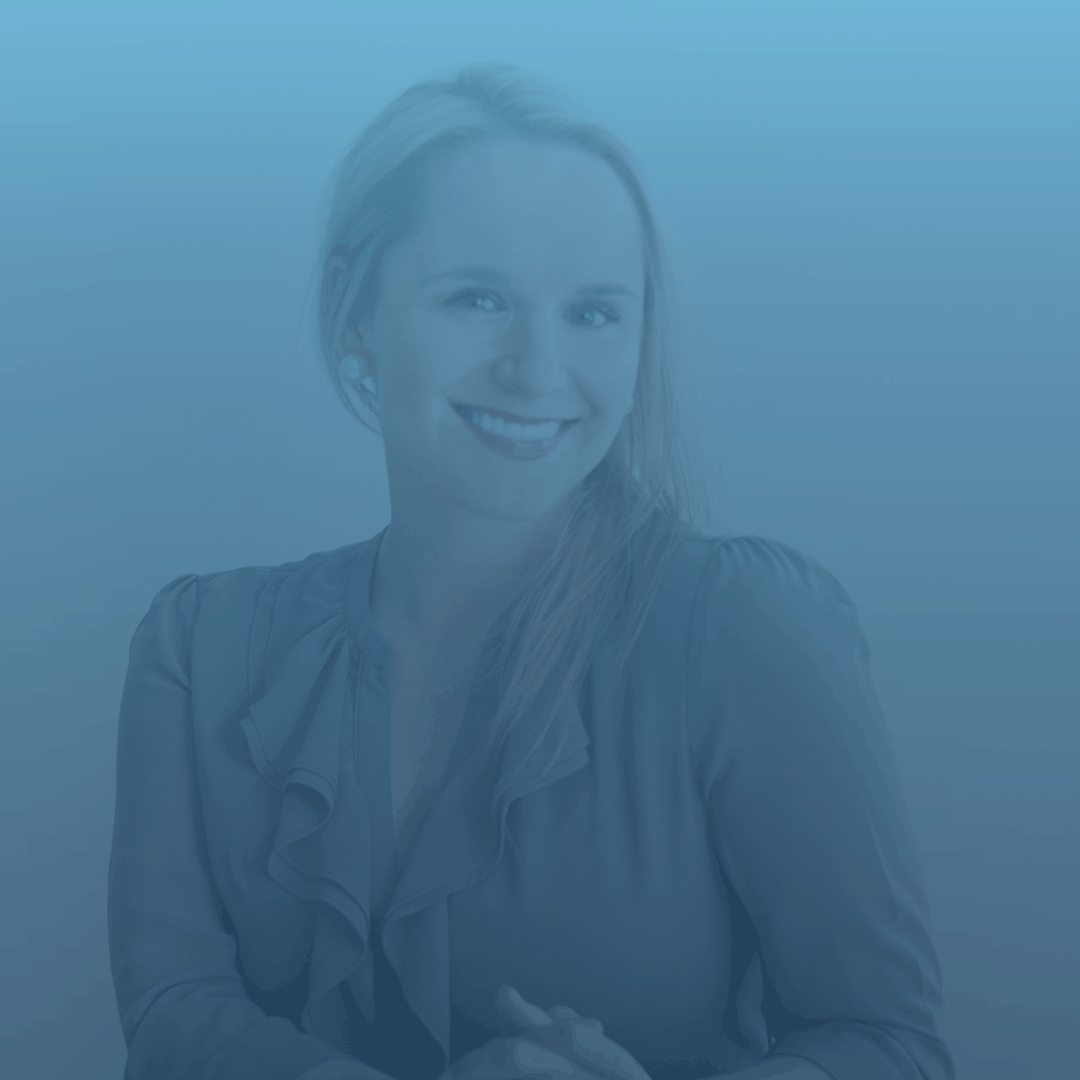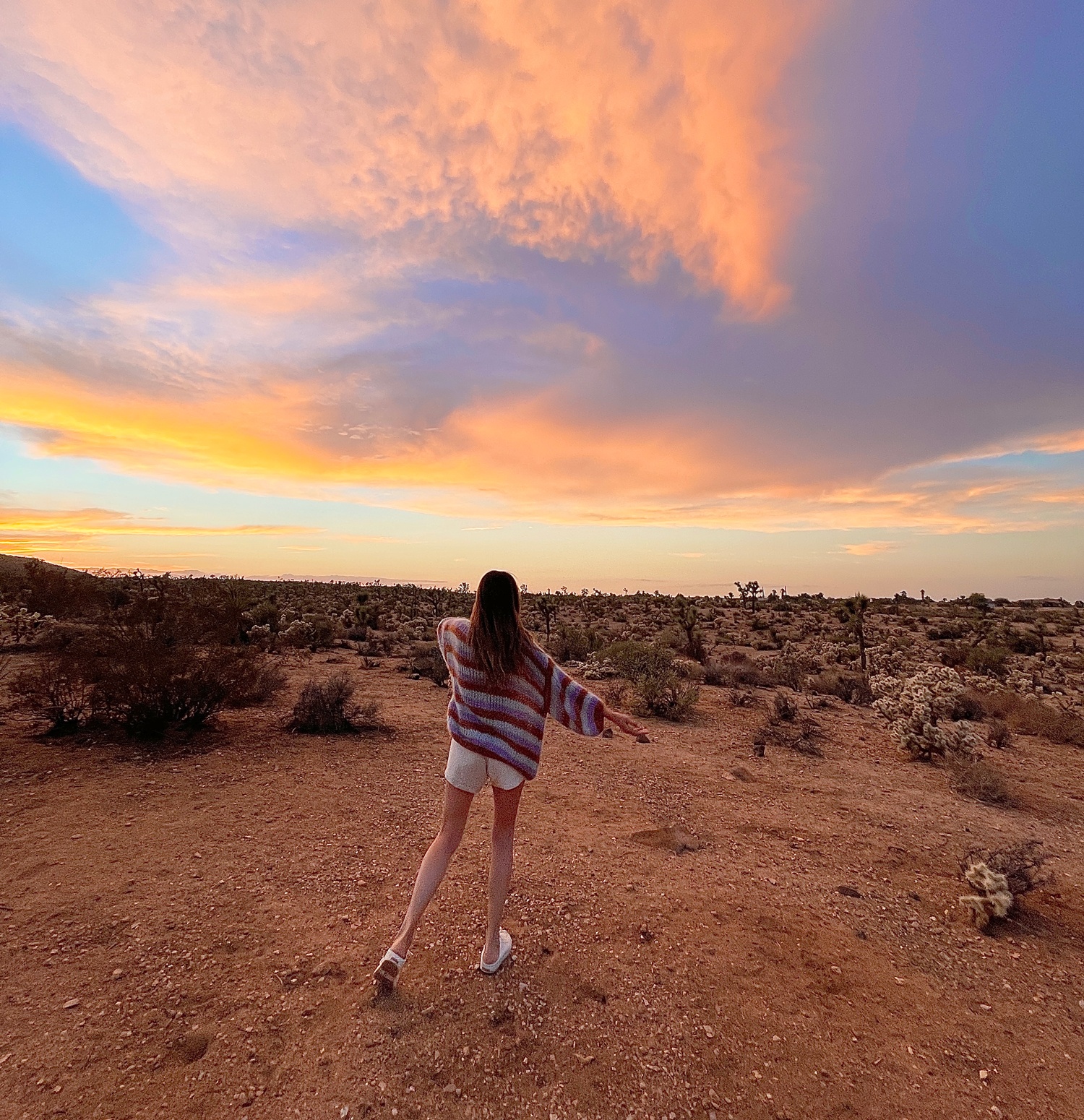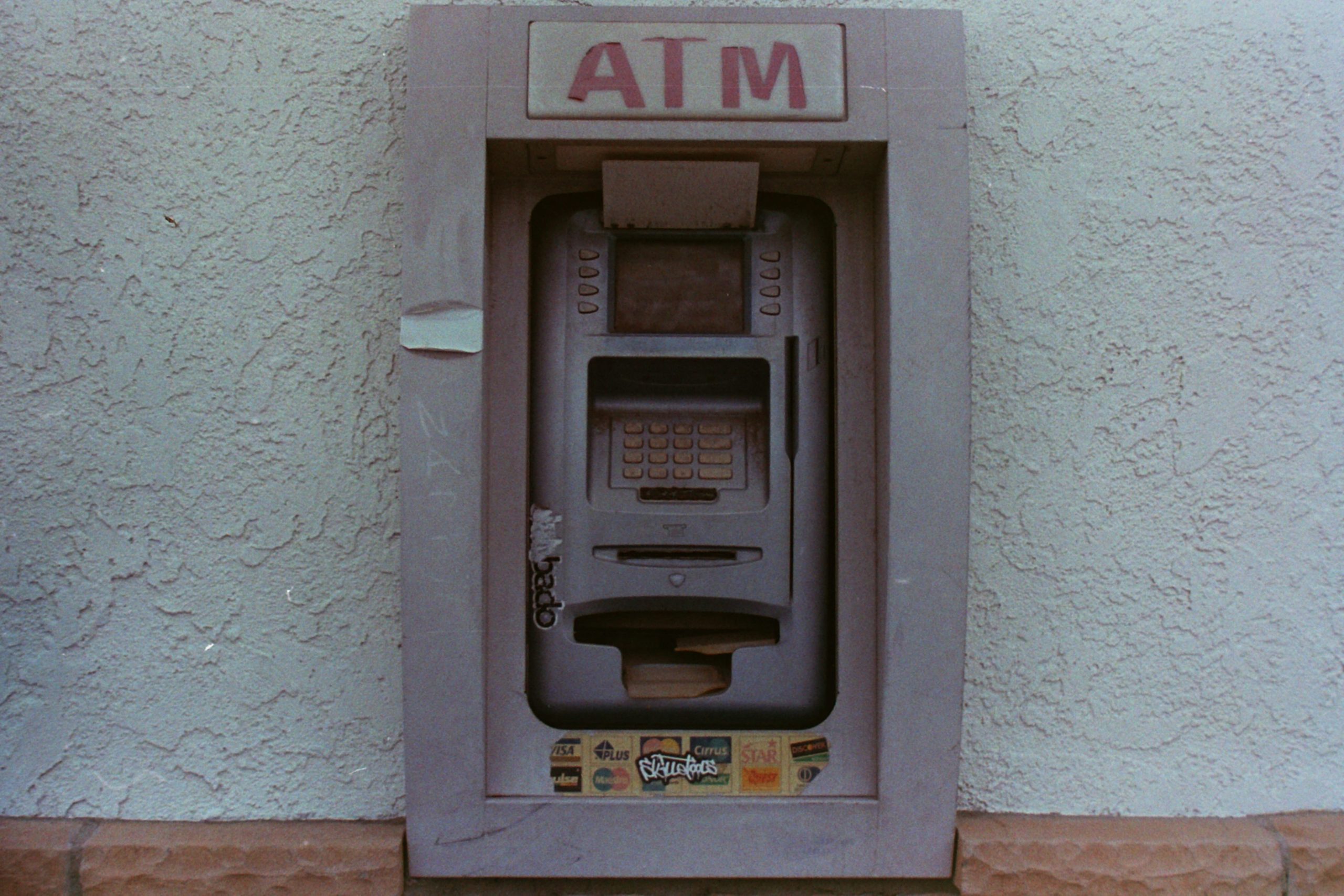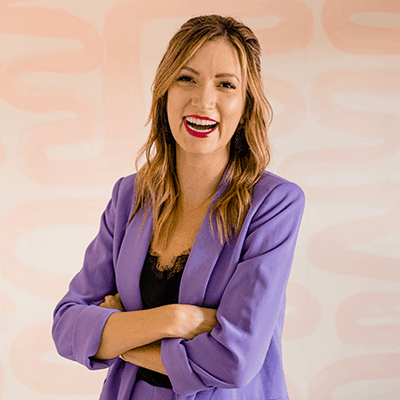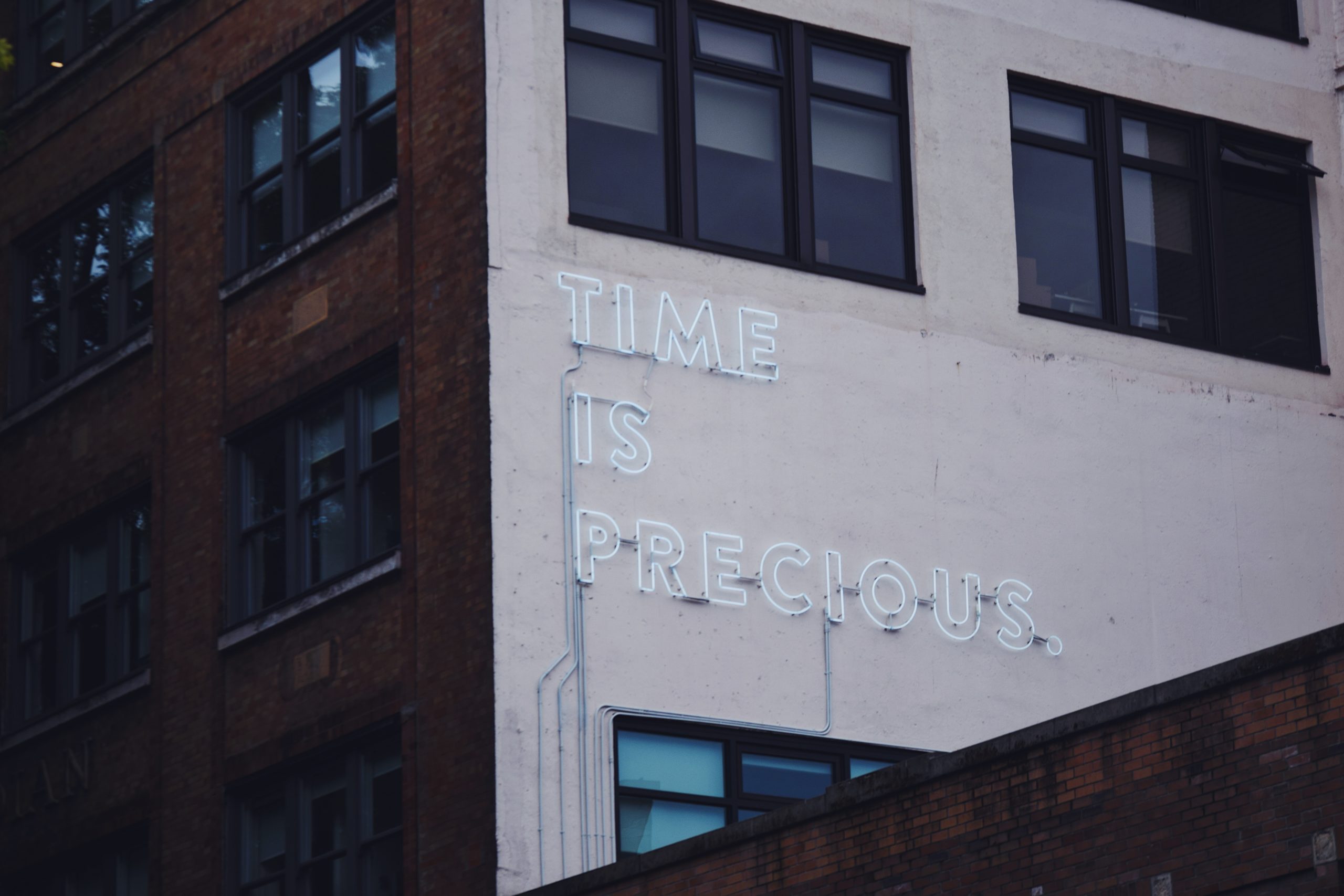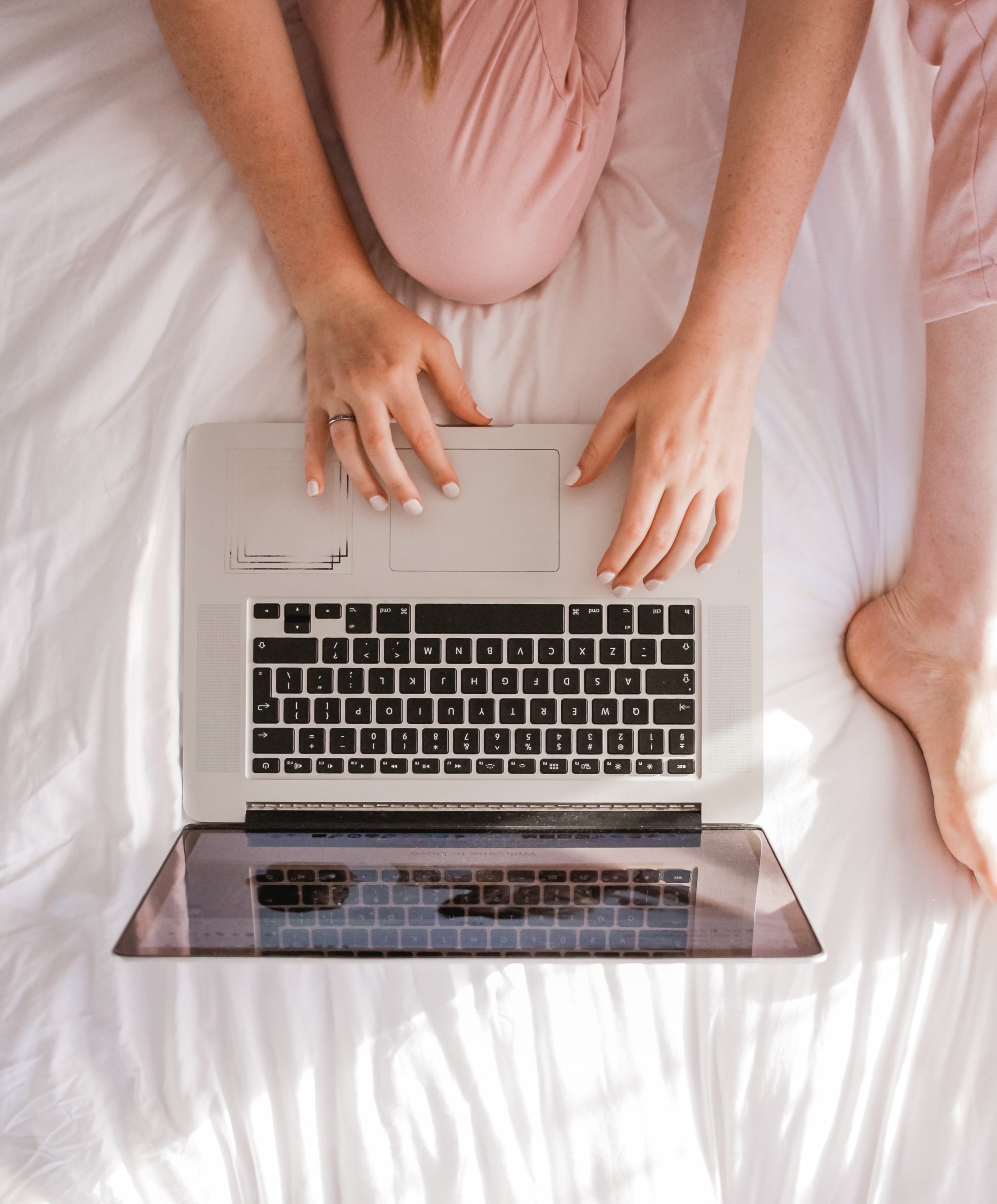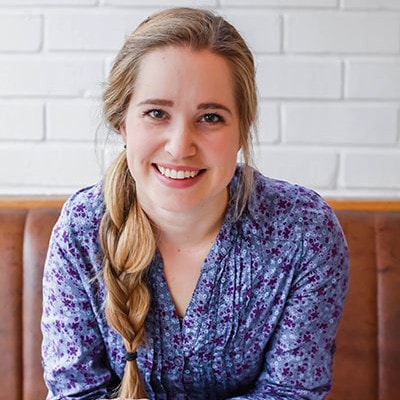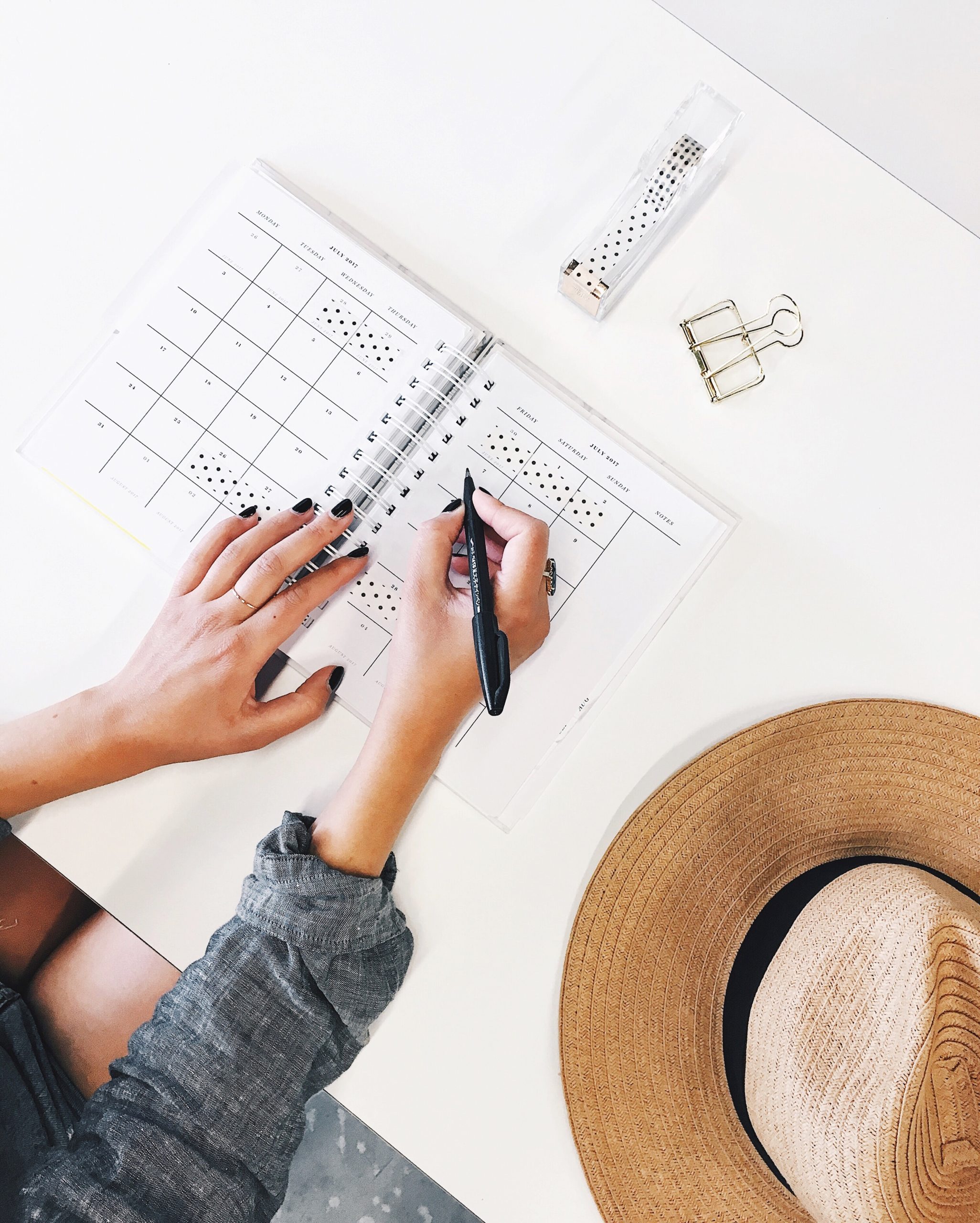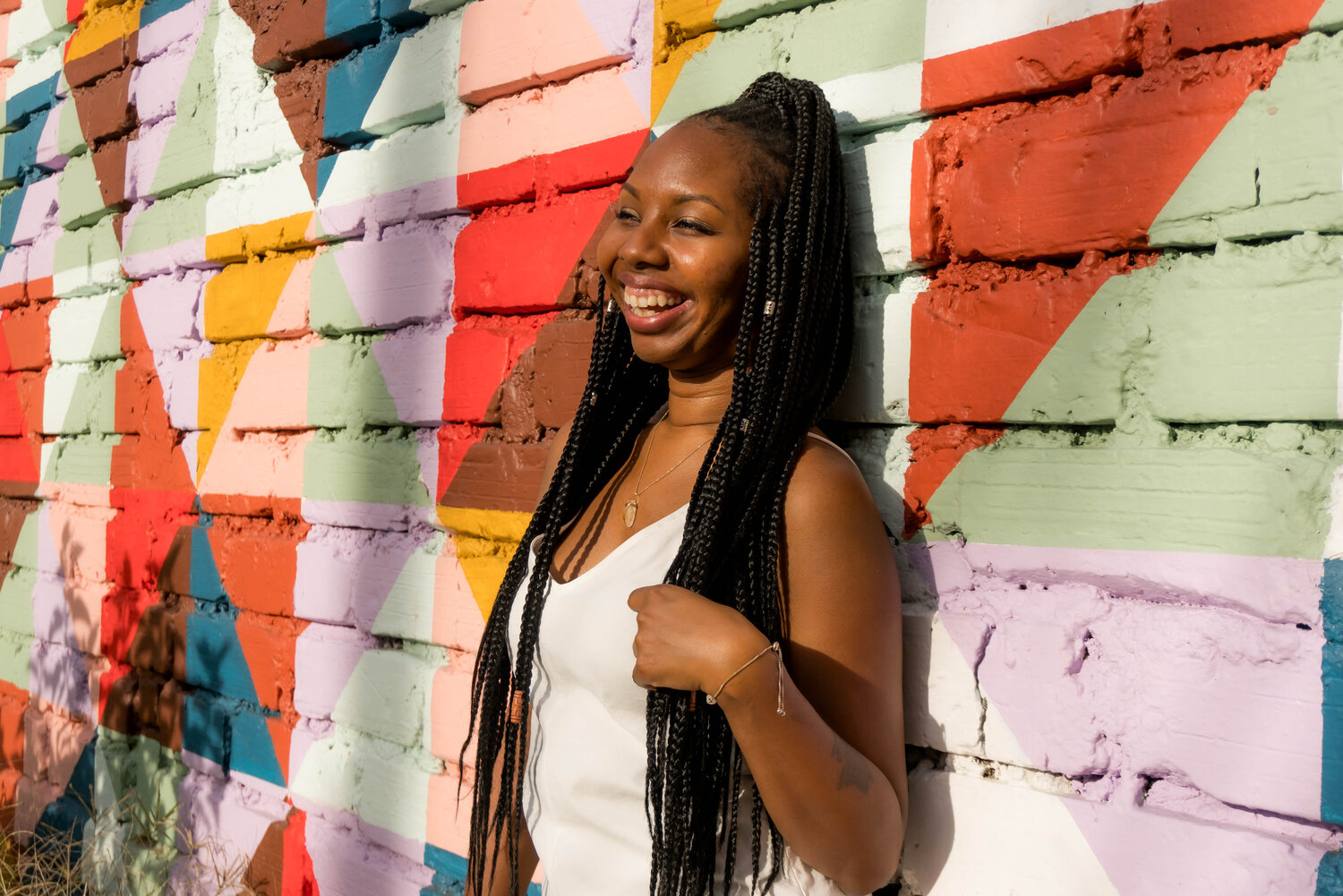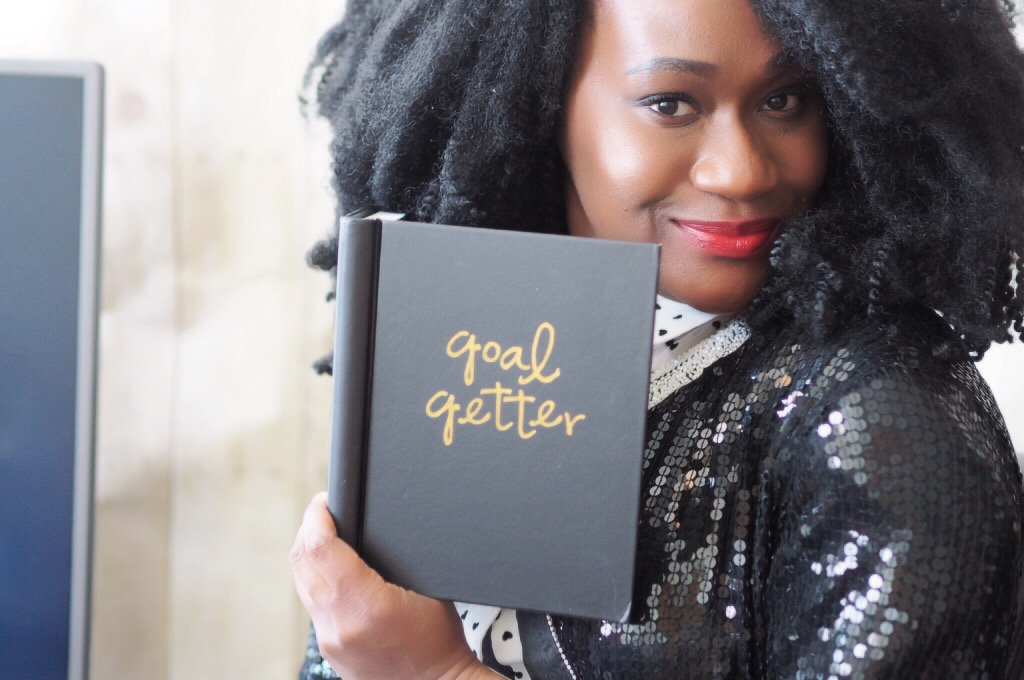Today’s guest is Susie Moore, a life coach and author based in New York City. She is the creator of Side Hustle Academy – the side hustle made simple, as well as an advisor to tech start ups. Her work has been featured on the Today show, Forbes, Marie Claire and more!
Now, I met Susie because one of my friends wanted to introduce us, saying that we’d definitely get along. So, when I was in town in New York, Susie and I made plans to hang out. I remember walking into a restaurant, almost as if I was on a blind date, not knowing if we’d actually hit it off. Well hit it off, we did.
We ended up staying and chatting for almost 4 hours, and since then, Susie has become a great friend of mine. She’s the type of person that if you ever get the chance to meet her, she immediately feels like one of your best friends — her charisma and kindness are virtually unmatched.
And beyond her high vibe personality, she’s also a force to be reckoned with as a life coach and business woman. In this interview, you’ll learn more about how Susie manages to be positive and joyful ALL the time, how she’s taken so many risks in her life with grace, how to be more confident, and how to create a profitable side hustle that allows you to live your purpose everyday. Susie even has a free gift for our listeners who want to start a successful side hustle. You can find that here!
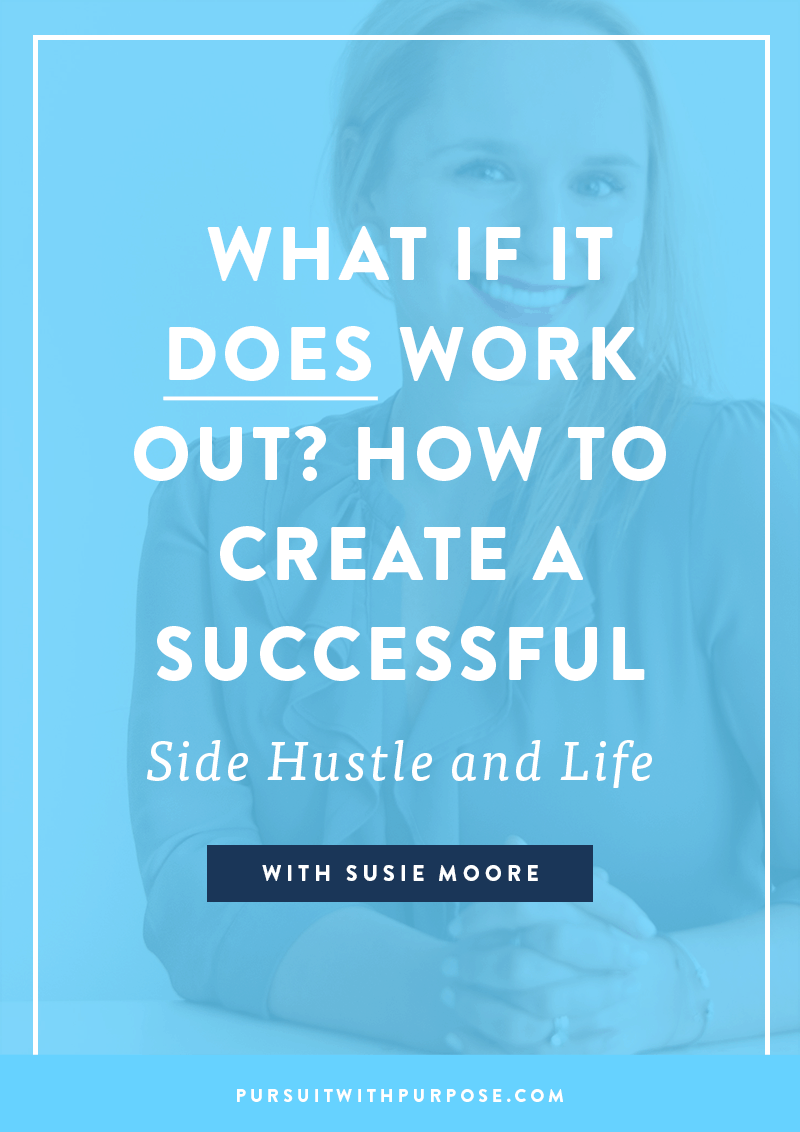
Check out the episode below:
In this episode, you’ll hear about things like…
- The self-care ritual that Susie uses to stay happy, positive and vibrant.
- How Susie manages huge decisions (like cross-country moves, a divorce in her 20s, and more) with such grace and ease.
- The #1 thing she sees that holds back many of her life coaching clients from achieving their highest potential.
- How to become more confident (and why confidence is essential to living a great life).
- How and why to stop taking yourself so seriously and get rid of your worries and fears.
- Susie’s advice for anyone with a side hustle and how you can turn your passion into a profitable business (even with a full-time day job!).
Links from the interview:
- Susie’s Website
- Side Hustle Prep School (free gift from Susie!)
- Susie’s Book, What If It Does Work Out?
- Susie on Facebook
- Susie on Instagram
- Susie on LinkedIn
- Susie on Twitter
- The 7 Habits of Highly Effective People, by Stephen R. Covey
Subscribe and Review…pretty please?
Want to be the first to know when new episodes are released? Click here to subscribe in iTunes!
Also, podcast reviews are pretty darn important to iTunes and the more reviews we receive, the more likely we’ll be able to get this podcast and message in front of more people (something about iTunes algorithms?). I’d be extremely grateful if you left a review right here letting me know your favorite part of this episode!
#PursuitWithPurpose
Loving the podcast? I encourage you to use the hashtag #PursuitWithPurpose to show our PWP tribe how you live your purpose everyday. Plus, you’ll get to sift through the hashtag to find other business owners who care about community and connectedness over competition and comparison. And I’ll be reposting some of my favorite images and stories, too. 🙂
Thank you for listening!
Transcript
Read the Interview Transcription HereToday’s guest is Susie Moore, a life coach and author based in New York City. She’s the creator of Side Hustle Academy – the side hustle made simple, as well as an advisor to tech startups. Her work’s been featured on The Today Show, Forbes, Marie Claire, and more. Now I met Susie because one of my friends wanted to introduce us, saying that we’d definitely get along. So when I was in town in New York City, Susie and I made some plans to hang out. I remember walking into this restaurant, almost as if I was on a blind date, not really knowing if we’d actually hit it off. Well hit it off we did. We ended up staying and chatting for almost four hours, and since then, Susie has become a great friend of mine. She’s the type of person that if you ever get the chance to meet her, she immediately feels like one of your best friends. Her charisma and kindness are virtually unmatched. Beyond her killer personality, she’s also a force to be reckoned with as a life coach and businesswoman.
In this interview, you’ll learn more about how Susie manages to be positive all the freaking time, how she’s taken so many risks in her life with grace, how to be more confident in your life, and how to create a profitable side hustle that allows you to live your purpose every day. Susie even has a free gift for our listeners who want to start a successful side hustle. You can find that at sidehustleprepschool.com/melyssa. You can also find that link down below this episode. Now let’s dig in.
Melyssa Griffin: So Susie, my first question for you is how the heck do you manage to stay so positive and bubbly all the time? Every time I see you, you’re just glowing and vibrant, and it attracts people to you. So how do you do that?
Susie Moore: So I think first of all, I’m not happy all the time because as you know, a human being, we have the ying and yang of life, but I have my down moments. I think what I’ve managed to do well, just walking my coaching talk, is that pay a lot of attention to my emotions and the thoughts that I’m thinking. I have a great self-care ritual for my mind. So I think that it’s very easy to have a downward spiral with your thoughts and when something goes wrong, that it really brings you down, to sometimes not expect good things to happen, and not really have the power of positive expectation. I think that when it comes to my thinking, I’ve really trained my brain to look for the good and to expect the good. That means that it happens.
Melyssa Griffin: Yeah I like that. What are some of the – you mentioned you have routines that you follow that help with that. What are some of those routines you follow?
Susie Moore: Yes. So I am obsessed with self-help, like obsessed. I’ve read hundreds of self-help books. I’m constantly listening to podcasts and videos and reading blogs. I follow so many different people on YouTube. Every morning when I wake up, I listen for at least 10 minutes, even if I’m packing the dishwasher or doing – whatever it may be, to something inspirational. I’m on the move, it’s very time efficient. I always consume inspirational material. I don’t know how anybody gets through life without it. If people aren’t reading self-help books, not consuming great podcast and content or reading inspirational things. It’s very easy for the mind to go to a place of being unhappy, being upset, being offended, being jealous. When you really stay focused on the things that make you feel good and make you feel in alignment with yourself, then good things just naturally appear because what you focus on expands.
Melyssa Griffin: I couldn’t agree more. What are some of the books or authors that you love the most?
Susie Moore: Oh I have so many. I love Wayne Dyer. Actually, Sara Blakely got me on to Wayne Dyer. She’s the founder of Spanx.
Melyssa Griffin: Yes. I recently started like loving Wayne Dyer too.
Susie Moore: Yes. I love, love, love Wayne Dyer. She said that when she was 16, she used to have him playing in her car on cassette tape, on audio back then. None of her friends wanted to ride to school with her. She said when I was on the cover of Forbes, everyone was like I should have rode in the car with Sara, listening to that crazy, old man. It’s really terrific*, Wayne Dyer changed her life, and she just became a no limits person because of him. I love Abraham-Hicks. I love Louise Hay. I love James Altucher. I mean I think there are so many incredible authors, I mean alive and dead. You can really go back to some old classics like Jim Rohn and Zig Ziglar. There’s so much wisdom to experience in book form*. You don’t have to live through every mistake and go through every experience, you can learn so much from other people. You can kind of find yourself help flavors*; some people like it spiritual, some people more businessy*. I like it all. It’s super simple, once you get started, you get hooked, and then more and more doors kind of keep unfolding or just find their way to you.
Melyssa Griffin: Yeah, that is so true. Do you feel you’ve always had this personal development love, like you’ve always been like this or was there a point where you just got really into all this stuff?
Susie Moore: I think when I was young, I’d always love quotes. My mom would kind of read quotes and would kind of talk about how you can choose to be happy. I became really obsessed with that at a young age, because what is more important than that? Even everything that we want or think we want, is because we think it will make us happy. If the car, the man, the body, the millions – whatever it is, we want those things because we think in having them, we’ll be really happy. You can choose to be happy any time. And so, it’s almost a bit of a secret. Once you kind of tune into that, I think that you naturally attract many of those things because you don’t have the barriers to them.
Melyssa Griffin: Right. Yeah, it’s like if you’re a complaining kind of person, you’re not going to attract happy, good things in your life because…
Susie Moore: You’re not in a receptive place.
Melyssa Griffin: Yeah exactly.
Susie Moore: Yeah. So self help truly helped. I got into it very young. I started reading self-help books young. Really, I’ve managed my inner world that way. I always think about my own inner screen, what I’m thinking, the inner dialogue that I have, because you’re always listening to the thoughts that you’re thinking. I find it so interesting how people are so picky. They’re so picky with what they eat. They’re so picky with what they wear, with what they invest in. But they’re not picky about the thoughts that they think. They can think trash in their mind, but look great and dress great – whatever it may be. It’s so important be really selective with what thoughts you tolerate and then which thoughts you water to grow and keep developing.
Melyssa Griffin: That’s such a good point. I love that distinction. So I feel like you’ve taken a lot of risks in your life and in your career. You went through a divorce when you were in your 20s. You’ve done multiple cross country, international moves, worked for various startups. I’m curious. How do you manage that? How do you take risks without the fear, or is there a fear involved?
Susie Moore: I think it’s funny taking risks I mean. In life, I think it’s very risky to not do a lot, to stay in one place if that’s not what you want, to maybe stay in one career if it doesn’t serve you, to not go after things, to approach people, to kind of test new environments for your stuff. I think it’s really risky not to do that, because it’s a really regretful place to be one day if you’re like gosh, my life is just so safe. Because the purpose of life is not to get through unharmed, like oh my gosh, no one hurt me. It’s really to experiencing than to expand. Moving I think is fun, some people might think it’s scary. It’s a little bit always because it’s change. Again, it’s how you perceive change. Being in different relationships, I think that’s also a part of life. I think when it comes to doing things and making bold moves as some people call them, it’s just again, managing your own fear and managing your possibility of how well the outcome can turn out with the right type of expectation and then the right action. So fear can really keep us still and stagnant. What I think a lot of people get wrong about taking risks is that by not risking, that’s the big risk because inaction is action. By not doing anything, by like staying with that boy, by staying in that job, by staying in that hometown or whatever where it’s not serving you, you’re not happy, then that is action you are choosing to make. That over time, will make you miserable if you’re not taking – if you’re not making the right moves for you.
Melyssa Griffin: Right. I love that distinction that inaction is a form of action. I feel like a lot of us just think well, if I don’t do anything then I’ll be safer, I’ll have security or stability. It’s the opposite right. You’re choosing that.
Susie Moore: And speaking of books, there’s a great book called “The Top Five Regrets of the Dying”. Have you heard of this book?
Melyssa Griffin: I have, yeah.
Susie Moore: So it’s written by this Australian hospice nurse, Bronnie Ware. She helps people like in their last kind of days and weeks, transition. She says that the dying people who she worked with, they have like these five common regrets. The number biggest regret, like the farthest this by far, is that people regret that they didn’t live a life true to themselves. They lived a life that other people expected of them. I mean what if your whole life is wrong? I mean what if you’re just doing the wrong things? I think the fear of regret is the only fear worth having because that way, you kind of live from a place of creativity and love and possibility. Things seem less scary when you give it some perspective, like even remembering that we’ll probably be dead in 50 years or however many years. I mean it’s a great motivator. It’s very sobering and it just keeps you kind of – it keeps you real.
Melyssa Griffin: Right. For people who are faced with that kind of decision, like one opportunity or one thing, like maybe they’re in a relationship and they’re not sure or they want to go for a job but they don’t know if they should do it – how do you know that you’re making the right choice for your life?
Susie Moore: Very big question. I actually think that we always know the answers. When we ask other people, it’s because we want them to validate our choice versus actually seeking advice. Because our inner voice, our inner guidance, it’s always there. It’s the only thing that you can rely on to make decisions for you. Nobody knows what’s right for you. Nobody knows what you should be eating, the way you should be living, what you should be focusing your energy on. Nobody knows those things. No one has your life. The most important thing is to be quiet, to listen to your intuition. It gets louder the more you pay attention to it, but the more you can sit it in just stillness, and truly just live by that. It doesn’t steer you the wrong way. Your intuition, it has to be your guide. It will never steer you wrong. Respond to every call that ignites your spirit because that is what’s calling to you because there’s something good there. No one else can see it or have an opinion on it because no one else is you.
Melyssa Griffin: I love that. I completely agree too, that I feel like we always know the answer inside. It’s more of we talk ourselves out of it or we try and justify some other answer that we think the world wants us to do or wants to see from us. So I love what you said.
Susie Moore: Haven’t you felt like when you’ve made kind of risky decisions or bold moves – like when it felt kind of exciting or it feels like you’re going to expand if you do it? That’s the right choice versus I’m not going to do it because it feels safe to be here. You might get relief for a second, but a year from now, that relief won’t be there. You’ll just have more misery and more feelings of dissatisfaction, discontent. It’s like something can feel scary and good at once. That’s the kind of where you want to be. If you’re not feeling afraid, I wonder if you’re even doing enough. If you’re not feeling afraid probably every day a little bit doing something. I love what James Altucher says. He says unless he’s afraid to hit publish on a blog post, he knows it’s a crap blog post. So if we’re not feeling afraid regularly, then I think we’re probably just not doing enough.
Melyssa Griffin: That is such a great point. I love that. So you’re an amazing life coach and you’ve helped a lot of clients. What do you, in your experience, what have you seen that’s held back a lot of your clients? Something that comes on again and again.
Susie Moore: People waiting for permission to do things that they want to do. People not wanting to offend or outshine others. People just constantly having this kind of imposter syndrome, enemy in their mind just holding them down. Your only enemy is yourself. No one can pinch you off from your wellbeing. No one can pinch you off from great opportunities. Even if a great opportunity doesn’t present itself or it closes, there’s more, There’s always more. It’s you that will just prevent yourself and hold you back. I mean you must see this too in your business. The people who get the results they want and get the success that they want and the growth, they’re getting busy. Sometimes the most talented people are the biggest over thinkers and procrastinators and they wait for things to be perfect which we know doesn’t exist. They don’t do anything because in their mind, they’re re like I’m afraid, this isn’t safe, I’m not ready. No one’s ever ready. I mean you’re not ready to start a podcast. You’re not ready to travel. You’re not ready to start a business ever. We just take action. I mean there are lots of excuses, but everything typically boils down to fears. So if you can manage your mental faculties well enough, then you can be truly unstoppable because confidence is more important than competence or anything else. If you can take just the action and just believe, it also, more confidence unfolds because it’s like a muscle grows, and you’ve realized what you can do, and it inspires you to do much more.
Melyssa Griffin: Yeah. I want to talk about confidence because I agree. I feel like that’s an essential ingredient in just having a happy, successful life zone. What are some things that you feel like people can do to create more confidence in their life?
Susie Moore: Oh I love it. So there are lots of things, plenty* and plenty of things. One thing that’s awesome is think about something that you’re proud of. Even if you’re not happy right now, just say something went wrong where you had a loss or someone’s upset you, can you think of one thing that you’re proud of? It can be your body, your sobriety, your savings, your relationship your parents – whatever it is. When you even go into that place of like pride for yourself and appreciation of what is, you cannot be in a place of fear? You naturally gravitate to a higher place. If you dwell on the things that go well, that have gone well in the past, you’re naturally in this elevated place of I can do more. There’s more where this came from.
Melyssa Griffin: Right. It’s almost like focusing on gratitude which is very similar.
Susie Moore: Yeah absolutely. I mean no one has to hear you be, you have to like rave about yourself to yourself. You have to say – like look in the mirror I mean – I got this from Louise Hay, she’s like you have to tell yourself in the mirror, I love you, like you’re wonderful, you’re beautiful. you’ve got this, you get it, you’re so talented. You have to have this very positive self-image which can really be a force of change instantly once you start thinking what am I proud of, what’s good in my life, what am I doing well. There’s always something going on. Even if like nine things are going wrong and one thing is going well, you can focus on that one thing and it’s slowly turns those other things around. We just choose not to focus on that. So you could focus on what’s going on. We need to feed our mind positive things and we need to be around people who elevate us. Actually, I saw this funny thing on Instagram recently. It’s like before you think that your life sucks or you’re not doing well, make sure you’re not surrounded by a group of jealous b*tches. Who you are around, are they supporting you? Are they are encouraging you? Are they doing great things too that make you want to do more and give more? I think that that’s kind of critical and we’re not necessarily conscious and intentional enough with who we surround ourselves with.
Melyssa Griffin: That is so true. What about for people who know that, who want to find other people who are on a similar wavelength, but maybe their family or their friends are really bringing them down? Do you have any advice for people who are in that position, where it’s like they see an opportunity, but everyone around them is not fulfilling that need?
Susie Moore: Yes. So recently, I had a conversation with a side hustler. She was like I’m really proud of my side hustle, but no one else is into it and it’s making me not enthusiastic about it. I said to her, “Are you really into your side hustle?” Because often what people, how they reflect on us, it’s like is she really confident about it? Is she really passion about it? Because a passionate, committed person is – I mean you can’t slow them down. If someone is working with intention, then almost like the opinions of others, they get quieter. We’ve kind of uncovered this; she just wasn’t feeling that good about it. And so, this kind of feedback from others was kind of weighing her down because it’s how she was…
Melyssa Griffin: Actually feeling.
Susie Moore: How she was actually feeling. So if you want to get around positive people or people who inspire you, it’s freaking easy. I mean you’ve done it. You get around groups of people with a lot of intention in your business. You can go to seminars. You can get on online groups. You can do stuff with little money, no money if you really want to. I think that some people don’t really want it. They’re happy to stay. They’re like oh you know, there’s nothing in my town so I get to play computer games or whatever, and be miserable. If you don’t want something, then hey that’s cool, say that, but don’t say you want it, take no action – a year later, you still want it, you haven’t got it. That’s your fault. That is your fault. It’s up to you. It’s like taking 100% responsibility for your life, is where the magic happens.
Melyssa Griffin: Yeah I totally agree. I actually interviewed Mark Manson recently and we were talking about that; how taking responsibility – this is something he talked about in his book too, where taking responsibility for everything that happens in your life is one of the facets to becoming happier, more successful, and just enjoying your life more. So I love what you’re saying about that, where it’s like if you just stop withering in the place that you’re in and make excuses, and you really make the effort – if you actually want something, make the effort to make it happen then you can have and be and do anything you want.
Susie Moore: That’s true. It is that simple because it’s nice for them. It’s like well not really, we’ve had our struggles. It’s not like everything was handed to you or life is so easy for you. That’s not true. Everyone suffers, no one escapes suffering. It’s truly like with the responsibility that you take for your choices, for your actions. I think there’s tremendous empowerment in that. I had a conversation with somebody once, he said, “oh no, but these people were bad to me. They treated me badly.” That might be true, but when you lose the blame of like, oh but those people mistreated me, that person stole my money, that person did the wrong thing. That might be true. It’s okay. Where is your choice though? There’s still a choice that you have. You can be happy truly. You can find power in any situation once you just take your control back and take that responsibility. I think it’s actually really freeing, not daunting, to take the responsibility for your life. I think it’s a really nice place to be, a nice place to feel.
Melyssa Griffin: Right. Kind of just going off of that. I read something in a book recently. It was something like it’s easier to feel happy, free, joyful than it is to be weighed down by anxiety, fear and pain. It’s that we actually live our lives oftentimes doing the opposite, where we live our life with fear, anxiety or pain when if we just took the steps to have the life we wanted, that maybe are scary in the moment, then we could have a whole life of these much happier emotions.
Susie Moore: I think that sometimes we just in that place because we almost just want to feel that. Sometimes we just kind of dwell in that and we want sympathy. Sometimes we want sympathy over respect. I guess sympathy can be easier to get, but really, there’s really no power in that long term for you.
Melyssa Griffin: Right. I agree. So you have a bestselling book called, “What If It Does Work Out?”. First of all, absolutely love the positive spin on the title. So you and so clever. What can we learn from this book? What are some of the biggest concepts that you teach in it as you write it?
Susie Moore: So when I started out as a coach, I was working as a sales director of a Fortune 500 company and I was making great money. I had great perks. Everyone was asking me why are you coaching, like at the weekends. Aren’t you making enough? Aren’t you doing enough? The reason I started my side hustle as a coach, was because no, it wasn’t enough and I felt guilty about that. I felt like I should apologize and I shouldn’t really want any more until I stopped feeling that way. I realize that the work I was doing was good, it was fine. I could have stayed there, but it wasn’t enough. People were asking me more and more how I was doing it. I think because a lot of people are unhappy at work. I mean the statistics say that 87% of Americans don’t feel engaged at work – which is very depressing. Your work is your service, is your contribution.
Melyssa Griffin: Yeah. It’s like half of your waking life.
Susie Moore: That’s the most depressing statistics. They don’t like their job at all. And so, people saying well how did you start this business, how did you go from a corporate career to coaching on the side, and now kind of having my business full time. I literally wrote this book, “What If It Does Work Out?: How a Side Hustle Can Change Your Life” in response to that. It’s like here is how you get started. I think I was tired of hearing self-up books and blogs, and so forth: follow your bliss or live your dreams. That’s nice and true, but it’s like how? How do you get one paying client? How do you have an idea? How do you take an idea from like your concept – just something that’s actually created, that’s tangible. So I wrote a book that’s very practical, about how, how to begin. Largely in demand what people were asking me, because it was typically a lot of the same stuff, like I’m an accountant but I secretly want to help people find love as a matchmaker or I’m a lawyer but I secretly love making jewelry and using a different part of my brain. So you can do that. I think too, when we become credibly fulfilled and we use like our real inner gifts, the world becomes happier because we’re less resentful, we’re more alive, we’re awake. The world needs people who are awake and engaged. That was kind of – that was the reason for writing that. I thought if more people do it, then everything just becomes easier and better. The impact of that is tremendous.
Melyssa Griffin: Right. Absolutely. When you teach people, are you teaching them in order for them to quit their job and pursue their side hustle full time, or is it more that you want to allow people to have their day job but then also if they want to have a side hustle to feed some other part of their brain or creativity, they can do that too?
Susie Moore: Yeah. Some people can have a side hustle forever. It can be a side hustle for the rest of their life, and that’s awesome. Some people do want to transition. They’re kind of in that 87% and they want to do something else. You don’t want to take a crazy risk out alone, do something for your family that doesn’t feel responsible. So doing it in this way as a side hustle attached, I think it’s like win, win, win, because you can get started with actually nothing, a zero dollar investment, just you and your skills. So it can really be for anyone, someone who wants a bit of extra money every month or someone who wants to make a full transition one day. It can really apply in lots of ways, depending on that.
Melyssa Griffin: Yeah I like that. What is usually the first step that you teach people to get started with their side hustle?
Susie Moore: Getting clear on what they’re good at; so what they love, what they’re good at and what will make money. That’s where the real juicy intersection is, it’s like what do you love. Because as you know Melyssa, you can love your business, but you have your obstacles. So you have to love it if you want to have the grit to continue. You want to be really good at it because you’re there to be of service. And then you want to make sure there’s a market financially because we need people to pay us for it to be real. It’s not an expensive hobby. It’s a hustle, and so, you need to make sure that you’re good at something that you love doing, and that there’s a demand for it. And then really, once you’re clear on those three things, like the feasibility, then the rest is, can become very clear.
Melyssa Griffin: Do people ever come to you, where they want to have a side hustle; they either just don’t really like their job or they want more freedom, they know they want to create a business, but they don’t know how to answer those questions? They’re like I don’t know what I’m good at, I don’t know what I would sell. Do people ever come to you, who feel like that?
Susie Moore: Yes. And so, it just requires a bit of digging. So again, this is kind of like where the humility has to go out the window, because it can also just be we don’t always do laborious exercise of really digging to find what you’re good at. You know what you’re good at, you probably just don’t have a lot of confidence. Everyone is good at something or many things. And so, I use certain questions to really dig out of people what they’re good at, like what do people come to you, what problems you help solve, what are you proud of in your career, who were you when you were a kid, what role models do you have, who do you look up to because some of the people we look up to, we are like. So there are lots of different exercises to really uncover what you’re good at and what your strengths are. Mainly again, it’s giving yourself that permission to be good because you often just don’t even want to go there, think it, do it. It’s daunting to live up to who you are.
Melyssa Griffin: That’s so true.
Susie Moore: It is. It’s like oh my gosh, now I’ve got to do something. It’s easy to lay in bed. So everybody is good at many things, it’s just kind of what the right thing is to begin with. The other thing that happens is some people have lots of ideas, like I want to be a fisher and a photographer and a baker. And so, you can just start with one, because that can be a procrastination tool too, like I have so many ideas. Just start with one. It doesn’t mean you’re turning your back on others. It just means you’re getting started and then it will grow from there. You can dive into anything else later. You just have to get busy with one.
Melyssa Griffin: Right. Yeah, that’s a great point. I’ve definitely seen that too with having so many ideas and then not ever pursuing any of them.
Susie Moore: It turns into an excuse.
Melyssa Griffin: It absolutely does. I like what you were saying too about how everyone is good at something, because that is so true and I think people forget that, where they think like I’m not good at anything. It’s either that they just don’t see how good they are at it or they just don’t see how it could be a marketable skill. So many of our talents are marketable, like they could be sold as a service even if we haven’t seen something like it before.
Susie Moore: I absolutely agree. We discount so heavily what we’re good at, because it comes easily. I love what lover Derrick Severs says. He says that what’s obvious to you is amazing to others. Just because you’re good at organizing a party or making gorgeous stationery or being a great networker or connection with other people, you like to write, like that is easy for a lot, for most other people. Because it comes naturally to you, you think it comes naturally to everyone, and that is not true. No. You have to own it, say yeah I’m good at this, step into the the power of it, and then go forward with that and believe in it.
Melyssa Griffin: Yeah I love that. So I know this one is huge for a lot of people. When you’re starting a side hustle, how do you find time to do it if you have a full time job or a family or something like that?
Susie Moore: So time is the other excuse. I wish we all agree with me on this one, Melyssa.
Melyssa Griffin: Yeah, we should have just titled this podcast like “Twenty Excuses You Make for Your Best Life”.
Susie Moore: I know, it’s true. Time is the biggest excuse. Look, I’m a massive fan of productivity hacks. I have plenty. I’m obsessed with being efficient. Really, if someone says they don’t have time, what they’re really saying is this is not a priority. Nothing else truly. I mean I’ve had single moms with two jobs take my program because they want to – they still want to do something, they still will make time. I always joke because I had a mug that said this: everyone has 24 hours in a day – you, me, Beyonce. Think about how much you could do if you want, to be prolific, to be busy onstage right but you think about how much you could do if you wanted to be prolific to be busy. So the first is just to realize that that is not true because no one has extra time. We all just have our days off with our life. The next is I think just to really get clear on your priorities. I love what Stephen Covey said, who wrote “The Seven Habits of Highly Effective People”, he said, “Don’t prioritize your schedule, schedule your priorities.” So is it a priority for you to go to that bachelorette party? Maybe not. Do you have to go to this event, that meeting, that phone call? Do you have to say yes just because someone invited you? I know we all want to be liked. We don’t want to upset anyone, but you have to get really good at saying no. Warren Buffett said the only difference between successful people and unsuccessful people is that successful people say no, like 99% of the time. So you have to have focus, you have to say no, you have to love yourself enough to say yes to things that matter to you. There are plenty of other things you can do. You can use your waiting time well. You can really focus on working during your golden hours, your peak state* in the day – everybody has one. You can batch your projects so you don’t have this task switching loss of productivity. There are lots of things to do but the most important thing is the decision that you do have time and it’s a priority.
Melyssa Griffin: I love that. So I want to talk a little bit about your Side Hustle Academy. Can you tell us a little bit about that?
Susie Moore: Yes. So in Side Hustle Academy, we go from taking a concept or an idea or lots of ideas and distilling them into one, and then just making it real. It’s really an action takers program. We speak specifically about really finding out what you’re good at, setting a great business foundation, knowing how to make sales in a way that’s really natural wand not sleazy. It’s actually a very spiritual way of selling.
Melyssa Griffin: Yeah, I can see that from you.
Susie Moore: Yeah, it’s like being of service, being of value. It’s why we’re all here. Every single business in the world solves a problem with no exception. So it’s like what problem are you solving and then letting people know about that. And then making sure that you can go from side hustling over a six week program onward from there, because you don’t want to just get started and then slump. You want to create a ritual and a system that’s going to work for you. So it’s kind of a very practical, doers, go-getters guide with a confidence injection, because really, as you know Melyssa, that is the differentiator between people who get what they want and people who are always waiting. And so, it’s also a bit of a confidence program I have to say, with how to make it real, making it real. That’s the focus.
Melyssa Griffin: Right. It’s for people who are basically at zero right now and want to create a side hustle?
Susie Moore: Yes. Also, I have people who take the program who have a side hustle, maybe it’s limping along and maybe they’ve reached an income plateau, or maybe they’ve kind of dropped off. They still have a lot of enthusiasm, but maybe didn’t future proof it with certain systems. So then we kind of go into a next level of growth too.
Melyssa Griffin: Got it. That’s awesome. That’s amazing So this is kind of a different topic but when we – we’re friends for anyone listening.
Susie Moore: Yes! We’re live together in my hotel room in LA right now.
Melyssa Griffin: Yeah, we actually recorded this interview a couple weeks ago over the internet. Susie lives in New York, I’m in LA. The internet was a little choppy, so our interview unfortunately, didn’t survive the choppiness. So we are luckily able to meet up here in Los Angeles and record a new one.
Susie Moore: Yay, live in person.
Melyssa Griffin: Live in person. One of the times that we hung out, I forget what we were talking about or what I was telling you, but you told me that one of your affirmations or sayings, that you live your life by is don’t take yourself too seriously. That resonated so much with me and probably with a lot of people listening, because I think in so many things in our lives, we take ourselves really seriously where we think this decision is it or like this is make or break or this relationship better work out or this thing better happen. We take things so seriously. What’s your take on that?
Susie Moore: Well nothing’s really that serious. I mean when you really, really think about it, very few decisions are irreversible, very few things can really ruin your life. In our mind, we can really just build things up to be so serious, so dramatic, so intense. If you could just have a bit of a sense of humor and just layoff ourselves a little bit, not only do we find instant relief in that, and relief is a wonderful emotion – all good emotions are steeped in a sense of relief. We can also just – I think actually see things as they really are. We’re wound tight and we’re in our brains so much and our computer and things are happening. Everything seems just like do or die, this decision or die, this email or die. It is just not that way. I mean I love the old saying that we make plans and the gods laugh. It’s like you think you have a plan – and it’s important have a plan, but really, so much of our life is out of our control. I actually heard somebody say once that we can only control 20% of our life, the climate* or traffic, the weather, other people, their opinions, the economy. We can give 100% towards* 20%. Wouldn’t you just kind of know that, that so much is out of your power? You can focus and be loving and be giving and do great things, but also know that you’re not the general manager of the universe. It’s like if anything happened to you, the world will still go on. When I wrote Americans don’t take vacations, I want to laugh and say joke is on you. It’s like if anything happened to you, your company would be fine. Everyone is replaceable. Everything is not that serious. We just need to lay off and laugh a little more. Think about it for like a longer term perspective, like does this really, really matter? I swear like 99% of the time, what you dislike today won’t even make an impact in like two years, three years. So we can just be lighter. We can be that lighter about things.
Melyssa Griffin: Yeah. Oh I absolutely agree. The 20% thing is interesting too; how we only have control over 20% of our lives. I was working with a spiritual coach/therapist recently. He and I kind of have this – I wouldn’t say issue, but I like to have control over things. He was asking me like well, what do you have control over in your life? I was listing things like well I have control over my business, my dog I guess. Just kind of these basic things. And then he started asking me like do you really have control over your business? What if something happened in the market and things changed or your entire staff quit or something like that?
Susie Moore: Or you were sick.
Melyssa Griffin: Right, or I’m sick. It started to dawn on me the more he asked me questions, the more I started answering like happily, like of course, well no I guess I don’t have control. Realizing what it all boils down to is the only thing in my life that I have control over is me. I don’t have control over the decisions anyone else makes or even the decisions my dog makes. He is completely autonomous.
Susie Moore: It’s true.
Melyssa Griffin: Yeah. Realizing that and realizing that my only purpose in life is just to do my best at what I do well and to not worry about whatever else happens, was really freeing for me.
Susie Moore: It’s very freeing. It’s like I’ve got my 20%, I’m giving it everything. And the rest, I can be a bit lighter about. We spoke about this when we had brunch once, how the evolution of just the Earth and how long humans have been alive, it’s like it’s nothing compared to like space and the stars. It’s like our life is like a little blip. It’s just like a current time space reality. How many years do we have? It’s like we don’t need to be so dramatic, not everything is so, so, so serious. Lighten up.
Melyssa Griffin: Yeah. It’s like the more you zoom out from Earth, the smaller everything else becomes.
Susie Moore: That’s why travel is great! That’s why being around worldly people is great. That’s why even sometimes spending time to meditate or to read and consume things you wouldn’t normally consume, you realize that your world kind of also isn’t all that important. There are other ways of doing it, other languages, other everything that just makes us realize that it’s not all about us.
Melyssa Griffin: Right. I absolutely agree. So one last question that I love to ask all of my guests. That is what do you feel like entrepreneurs or just humans in general could do to live more meaningful, fulfilled lives?
Susie Moore: Oh I love the question and there are so many answers. So I heard somebody say this once that if you meditate – a monk said this, if you meditated for 20 years like nonstop, that’s all you did, the answer you would arrive at is be yourself. So I think that the best thing you can do for yourself and for others, is have the courage to be yourself. That’s it.
Melyssa Griffin: I love that so much, and that’s so you. You are vibrantly yourself and it’s amazing.
Susie Moore: Thanks, Melyssa.
